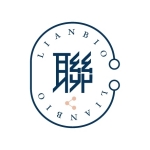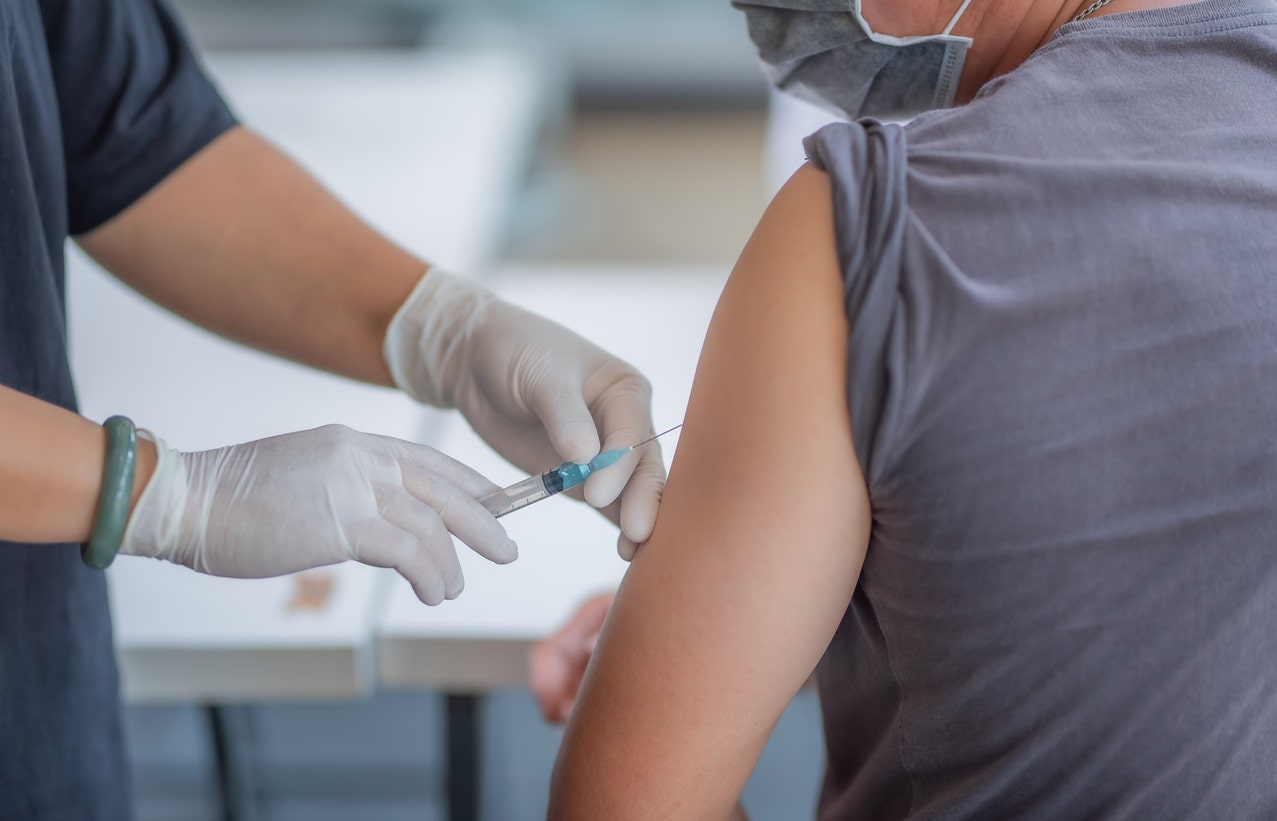- Only HER2 directed medicine to demonstrate significant improvement in overall survival compared to chemotherapy for preuviously treated patients in this setting
TOKYO & MUNICH & BASKING RIDGE, N.J.–(BUSINESS WIRE)–Daiichi Sankyo Company, Limited (hereafter, Daiichi Sankyo) and AstraZeneca’s ENHERTU (fam-trastuzumab deruxtecan-nxki) has received acceptance for its supplemental Biologics License Application (sBLA) and has also been granted Priority Review in the U.S. for the treatment of patients with HER2 positive metastatic gastric or gastroesophageal junction (GEJ) adenocarcinoma. The PDUFA date has been set for the first quarter of the 2021 calendar year.

There are more than 27,000 new cases of gastric cancer in the U.S. each year, of which approximately one in five are HER2 positive.1,2 For patients with metastatic gastric cancer who progress on initial treatment with an anti-HER2 regimen, there are no other approved HER2 directed medicines.
The U.S. Food and Drug Administration (FDA) grants Priority Review to applications for medicines that offer significant advances over available options by demonstrating safety or efficacy improvements, preventing serious conditions, or enhancing patient compliance.
The sBLA is based on results from the randomized phase 2 DESTINY-Gastric01 trial, which demonstrated a statistically significant and clinically meaningful improvement in objective response rate (ORR), the primary endpoint, and overall survival (OS), a key secondary endpoint, for patients treated with ENHERTU versus chemotherapy (paclitaxel or irinotecan monotherapy). The results from the trial were presented during the 2020 American Society of Clinical Oncology (ASCO) Virtual Scientific Program and simultaneously published online in The New England Journal of Medicine.
ENHERTU received Breakthrough Therapy Designation (BTD) from the FDA in May 2020 for patients with unresectable or metastatic HER2 positive gastric or GEJ adenocarcinoma who have received two or more prior regimens including trastuzumab – one of three BTDs that have been granted to ENHERTU in the U.S. – and Orphan Drug Designation (ODD) for patients with gastric cancer, including GEJ adenocarcinoma.
The safety and tolerability profiles of ENHERTU in DESTINY-Gastric01 were consistent with that observed in the gastric cancer cohort of the phase 1 trial and previously reported ENHERTU trials in other tumors. The most common grade 3 or higher treatment-emergent adverse events were decreased neutrophil count, anemia, decreased white blood cell count and decreased appetite. There were 12 cases (9.6%) of confirmed treatment-related interstitial lung disease (ILD) or pneumonitis in 125 patients treated with ENHERTU as determined by an independent adjudication committee. The majority of cases were grade 1 or 2 with two grade 3, one grade 4 and no grade 5 (no ILD-related deaths).
“The results of the DESTINY-Gastric01 trial are unprecedented as they represent the first time a HER2 directed medicine has demonstrated an improvement in survival following chemotherapy and HER2 treatment in the metastatic setting,” said Antoine Yver, MD, MSc, Executive Vice President and Global Head, Oncology Research and Development, Daiichi Sankyo. “Building on the recent Breakthrough Therapy Designation, the filing of the application and Priority Review by the FDA for this potential new indication for ENHERTU reflects the importance of the data and the significant unmet need for patients with previously treated HER2 positive metastatic gastric cancer.”
“Once patients with HER2 positive metastatic gastric cancer progress following initial treatment with an anti-HER2 regimen, there are no approved HER2 directed medicines,” said José Baselga, MD, PhD, Executive Vice President, Oncology R&D, AstraZeneca. “The prognosis for these patients is poor as available treatment options offer only limited clinical benefit. This milestone brings us one step closer to delivering this potentially practice-changing medicine to patients with gastric cancer in the U.S.”
About Gastric Cancer
Gastric (stomach) cancer is the fifth most common cancer worldwide and the third leading cause of cancer mortality with a five-year survival rate of 5% for metastatic disease; there were approximately one million new cases reported in 2018 and 783,000 deaths.3,4 In the U.S., it is estimated that 27,600 new cases of gastric cancer will be diagnosed in 2020 and more than 11,000 people will die from the disease.1
Approximately one in five gastric cancers are HER2 positive.2 HER2 is a tyrosine kinase receptor growth-promoting protein expressed on the surface of many types of tumors including breast, gastric, lung and colorectal cancers. Gastric cancer is usually diagnosed in the advanced stage, but even when diagnosed in earlier stages of the disease the survival rate remains modest.5 Recommended first-line treatment for HER2 positive metastatic gastric cancer is combination chemotherapy plus trastuzumab, an anti-HER2 medicine, which has been shown to improve survival outcomes when added to chemotherapy.6 For metastatic gastric cancer that progresses on first-line treatment, there are no other approved HER2 targeting medicines.7
About DESTINY-Gastric01
DESTINY-Gastric01 is an open-label, multi-center, randomized, pivotal phase 2 trial evaluating the safety and efficacy of ENHERTU versus investigator’s choice of chemotherapy in a primary cohort of 188 patients from Japan and South Korea with HER2 positive (defined as IHC3+ or IHC2+/ISH+), advanced gastric cancer or GEJ adenocarcinoma who had progressed on two or more prior treatment regimens including fluoropyrimidine (5-FU), platinum chemotherapy and trastuzumab. Patients were randomized 2:1 to receive ENHERTU or investigator’s choice of chemotherapy (paclitaxel or irinotecan monotherapy). Patients were treated with ENHERTU 6.4 mg/kg once every three weeks or chemotherapy.
The primary endpoint of the trial is ORR, as assessed by independent central review. OS, a key secondary endpoint, was to be evaluated hierarchically at a prespecified interim analysis if the primary endpoint was statistically significant. Additional efficacy endpoints include progression-free survival, duration of response, disease control rate and confirmed ORR assessed in those responses confirmed by a follow-up scan of at least four weeks after initial independent central review.
About ENHERTU
ENHERTU (fam-trastuzumab deruxtecan-nxki in the U.S. only; trastuzumab deruxtecan outside the U.S.) is a HER2 directed antibody drug conjugate (ADC) and is the lead ADC in the oncology portfolio of Daiichi Sankyo and the most advanced program in AstraZeneca’s ADC scientific platform.
ADCs are targeted cancer medicines that deliver cytotoxic chemotherapy (“payload”) to cancer cells via a linker attached to a monoclonal antibody that binds to a specific target expressed on cancer cells. Designed using Daiichi Sankyo’s proprietary DXd ADC technology, ENHERTU is comprised of a HER2 monoclonal antibody attached to a topoisomerase I inhibitor payload by a tetrapeptide-based linker.
ENHERTU (5.4 mg/kg) is approved in the U.S. and Japan for the treatment of adult patients with unresectable or metastatic HER2 positive breast cancer who have received two or more prior anti-HER2 based regimens in the metastatic setting based on the DESTINY-Breast01 trial, and is under accelerated assessment in the European Union for HER2 positive metastatic breast cancer. Recently, in September 2020, ENHERTU (6.4 mg/kg) was approved in Japan for patients with HER2 positive unresectable advanced or recurrent gastric cancer that has progressed after chemotherapy.
ENHERTU has not been approved in the EU, or countries outside of Japan and the U.S., for any indication. It is an investigational agent globally for various indications. Safety and effectiveness have not been established for the subject proposed use in the U.S. or EU.
About the ENHERTU Clinical Development Program
A comprehensive development program is underway globally with eight registrational trials evaluating the efficacy and safety of ENHERTU monotherapy across multiple HER2 targetable cancers including breast, gastric and lung cancers. Trials in combination with other anticancer treatments, such as immunotherapy, are also underway.
In May 2020, ENHERTU received BTD from the U.S. FDA for the treatment of patients with HER2 positive unresectable or metastatic gastric or GEJ adenocarcinoma who have received two or more prior regimens including trastuzumab and Orphan Drug Designation for gastric cancer, including GEJ adenocarcinoma. Two additional phase 2 trials DESTINY-Gastric02 and DESTINY-Gastric03 are underway further evaluating the use of ENHERTU in patients with HER2 positive metastatic gastric cancer.
In May 2020, ENHERTU also received a BTD for the treatment of patients with metastatic non-small cell lung cancer (NSCLC) whose tumors have a HER2 mutation and with disease progression on or after platinum-based therapy.
In July 2020, the European Medicines Agency’s Committee for Medicinal Products for Human Use granted ENHERTU accelerated assessment for the treatment of adults with unresectable or metastatic HER2 positive breast cancer who have received two or more prior anti-HER2 based regimens.
About the Collaboration between Daiichi Sankyo and AstraZeneca
Daiichi Sankyo and AstraZeneca entered into a global collaboration to jointly develop and commercialize ENHERTU (a HER2 directed ADC) in March 2019, and DS-1062 (a TROP2 directed ADC) in July 2020, except in Japan where Daiichi Sankyo maintains exclusive rights. Daiichi Sankyo is responsible for manufacturing and supply of ENHERTU and DS-1062.
U.S. FDA-Approved Indication for ENHERTU
ENHERTU is a HER2-directed antibody and topoisomerase inhibitor conjugate indicated for the treatment of adult patients with unresectable or metastatic HER2-positive breast cancer who have received two or more prior anti-HER2-based regimens in the metastatic setting.
This indication is approved under accelerated approval based on tumor response rate and duration of response. Continued approval for this indication may be contingent upon verification and description of clinical benefit in a confirmatory trial.
WARNING: INTERSTITIAL LUNG DISEASE and EMBRYO-FETAL TOXICITY
- Interstitial lung disease (ILD) and pneumonitis, including fatal cases, have been reported with ENHERTU. Monitor for and promptly investigate signs and symptoms including cough, dyspnea, fever, and other new or worsening respiratory symptoms. Permanently discontinue ENHERTU in all patients with Grade 2 or higher ILD/pneumonitis. Advise patients of the risk and to immediately report symptoms.
- Exposure to ENHERTU during pregnancy can cause embryo-fetal harm. Advise patients of these risks and the need for effective contraception.
|
Contraindications
None.
WARNINGS AND PRECAUTIONS
Interstitial Lung Disease / Pneumonitis
Severe, life-threatening, or fatal interstitial lung disease (ILD), including pneumonitis, can occur in patients treated with ENHERTU. In clinical studies, of the 234 patients with unresectable or metastatic HER2-positive breast cancer treated with ENHERTU, ILD occurred in 9% of patients. Fatal outcomes due to ILD and/or pneumonitis occurred in 2.6% of patients treated with ENHERTU. Median time to first onset was 4.1 months (range: 1.2 to 8.3).
Advise patients to immediately report cough, dyspnea, fever, and/or any new or worsening respiratory symptoms. Monitor patients for signs and symptoms of ILD. Promptly investigate evidence of ILD. Evaluate patients with suspected ILD by radiographic imaging. Consider consultation with a pulmonologist. For asymptomatic ILD/pneumonitis (Grade 1), interrupt ENHERTU until resolved to Grade 0, then if resolved in ≤28 days from date of onset, maintain dose. If resolved in >28 days from date of onset, reduce dose one level. Consider corticosteroid treatment as soon as ILD/pneumonitis is suspected (e.g., ≥0.5 mg/kg prednisolone or equivalent). For symptomatic ILD/pneumonitis (Grade 2 or greater), permanently discontinue ENHERTU. Promptly initiate corticosteroid treatment as soon as ILD/pneumonitis is suspected (e.g., ≥1 mg/kg prednisolone or equivalent). Upon improvement, follow by gradual taper (e.g., 4 weeks).
Neutropenia
Severe neutropenia, including febrile neutropenia, can occur in patients treated with ENHERTU. Of the 234 patients with unresectable or metastatic HER2-positive breast cancer who received ENHERTU, a decrease in neutrophil count was reported in 30% of patients and 16% had Grade 3 or 4 events. Median time to first onset was 1.4 months (range: 0.3 to 18.2). Febrile neutropenia was reported in 1.7% of patients.
Monitor complete blood counts prior to initiation of ENHERTU and prior to each dose, and as clinically indicated. Based on the severity of neutropenia, ENHERTU may require dose interruption or reduction. For Grade 3 neutropenia (Absolute Neutrophil Count [ANC] <1.0 to 0.5 x 109/L) interrupt ENHERTU until resolved to Grade 2 or less, then maintain dose. For Grade 4 neutropenia (ANC <0.5 x 109/L) interrupt ENHERTU until resolved to Grade 2 or less. Reduce dose by one level. For febrile neutropenia (ANC <1.0 x 109/L and temperature >38.3ºC or a sustained temperature of ≥38ºC for more than 1 hour), interrupt ENHERTU until resolved. Reduce dose by one level.
Left Ventricular Dysfunction
Patients treated with ENHERTU may be at increased risk of developing left ventricular dysfunction. Left ventricular ejection fraction (LVEF) decrease has been observed with anti-HER2 therapies, including ENHERTU. In the 234 patients with unresectable or metastatic HER2-positive breast cancer who received ENHERTU, two cases (0.9%) of asymptomatic LVEF decrease were reported. Treatment with ENHERTU has not been studied in patients with a history of clinically significant cardiac disease or LVEF <50% prior to initiation of treatment.
Assess LVEF prior to initiation of ENHERTU and at regular intervals during treatment as clinically indicated. Manage LVEF decrease through treatment interruption. Permanently discontinue ENHERTU if LVEF of <40% or absolute decrease from baseline of >20% is confirmed. When LVEF is >45% and absolute decrease from baseline is 10-20%, continue treatment with ENHERTU. When LVEF is 40-45% and absolute decrease from baseline is <10%, continue treatment with ENHERTU and repeat LVEF assessment within 3 weeks. When LVEF is 40-45% and absolute decrease from baseline is 10-20%, interrupt ENHERTU and repeat LVEF assessment within 3 weeks. If LVEF has not recovered to within 10% from baseline, permanently discontinue ENHERTU. If LVEF recovers to within 10% from baseline, resume treatment with ENHERTU at the same dose. When LVEF is <40% or absolute decrease from baseline is >20%, interrupt ENHERTU and repeat LVEF assessment within 3 weeks. If LVEF of <40% or absolute decrease from baseline of >20% is confirmed, permanently discontinue ENHERTU. Permanently discontinue ENHERTU in patients with symptomatic congestive heart failure.
Embryo-Fetal Toxicity
ENHERTU can cause fetal harm when administered to a pregnant woman. Advise patients of the potential risks to a fetus. Verify the pregnancy status of females of reproductive potential prior to the initiation of ENHERTU. Advise females of reproductive potential to use effective contraception during treatment and for at least 7 months following the last dose of ENHERTU. Advise male patients with female partners of reproductive potential to use effective contraception during treatment with ENHERTU and for at least 4 months after the last dose of ENHERTU.
Adverse Reactions
The safety of ENHERTU was evaluated in a pooled analysis of 234 patients with unresectable or metastatic HER2-positive breast cancer who received at least one dose of ENHERTU 5.4 mg/kg in DESTINY-Breast01 and Study DS8201-A-J101. ENHERTU was administered by intravenous infusion once every three weeks. The median duration of treatment was 7 months (range: 0.7 to 31).
Serious adverse reactions occurred in 20% of patients receiving ENHERTU. Serious adverse reactions in >1% of patients who received ENHERTU were interstitial lung disease, pneumonia, vomiting, nausea, cellulitis, hypokalemia, and intestinal obstruction. Fatalities due to adverse reactions occurred in 4.3% of patients including interstitial lung disease (2.6%), and the following events occurred in one patient each (0.4%): acute hepatic failure/acute kidney injury, general physical health deterioration, pneumonia, and hemorrhagic shock.
ENHERTU was permanently discontinued in 9% of patients, of which ILD accounted for 6%. Dose interruptions due to adverse reactions occurred in 33% of patients treated with ENHERTU. The most frequent adverse reactions (>2%) associated with dose interruption were neutropenia, anemia, thrombocytopenia, leukopenia, upper respiratory tract infection, fatigue, nausea, and ILD. Dose reductions occurred in 18% of patients treated with ENHERTU. The most frequent adverse reactions (>2%) associated with dose reduction were fatigue, nausea, and neutropenia.
The most common adverse reactions (frequency ≥20%) were nausea (79%), fatigue (59%), vomiting (47%), alopecia (46%), constipation (35%), decreased appetite (32%), anemia (31%), neutropenia (29%), diarrhea (29%), leukopenia (22%), cough (20%), and thrombocytopenia (20%).
Use in Specific Populations
- Pregnancy: ENHERTU can cause fetal harm when administered to a pregnant woman. Advise patients of the potential risks to a fetus. There are clinical considerations if ENHERTU is used in pregnant women, or if a patient becomes pregnant within 7 months following the last dose of ENHERTU.
- Lactation: There are no data regarding the presence of ENHERTU in human milk, the effects on the breastfed child, or the effects on milk production. Because of the potential for serious adverse reactions in a breastfed child, advise women not to breastfeed during treatment with ENHERTU and for 7 months after the last dose.
- Females and Males of Reproductive Potential: Pregnancy testing: Verify pregnancy status of females of reproductive potential prior to initiation of ENHERTU. Contraception: Females: ENHERTU can cause fetal harm when administered to a pregnant woman. Advise females of reproductive potential to use effective contraception during treatment with ENHERTU and for at least 7 months following the last dose. Males: Advise male patients with female partners of reproductive potential to use effective contraception during treatment with ENHERTU and for at least 4 months following the last dose. Infertility: ENHERTU may impair male reproductive function and fertility.
- Pediatric Use: Safety and effectiveness of ENHERTU have not been established in pediatric patients.
- Geriatric Use: Of the 234 patients with HER2-positive breast cancer treated with ENHERTU 5.4 mg/kg, 26% were ≥65 years and 5% were ≥75 years. No overall differences in efficacy were observed between patients ≥65 years of age compared to younger patients. There was a higher incidence of Grade 3-4 adverse reactions observed in patients aged ≥65 years (53%) as compared to younger patients (42%).
- Hepatic Impairment: In patients with moderate hepatic impairment, due to potentially increased exposure, closely monitor for increased toxicities related to the topoisomerase inhibitor.
To report SUSPECTED ADVERSE REACTIONS, contact Daiichi Sankyo, Inc. at 1-877-437-7763 or FDA at 1-800-FDA-1088 or fda.gov/medwatch.
Please see accompanying full Prescribing Information, including Boxed WARNINGS, and Medication Guide.
About Daiichi Sankyo Cancer Enterprise
The mission of Daiichi Sankyo Cancer Enterprise is to leverage our world-class, innovative science and push beyond traditional thinking to create meaningful treatments for patients with cancer. We are dedicated to transforming science into value for patients, and this sense of obligation informs everything we do. Anchored by our DXd antibody drug conjugate (ADC) technology, our powerful research engines include biologics, medicinal chemistry, modality and other research laboratories in Japan, and Plexxikon Inc., our small molecule structure-guided R&D center in Berkeley, CA. For more information, please visit: www.DSCancerEnterprise.com.
About Daiichi Sankyo
Daiichi Sankyo Group is dedicated to the creation and supply of innovative pharmaceutical therapies to improve standards of care and address diversified, unmet medical needs of people globally by leveraging our world-class science and technology. With more than 100 years of scientific expertise and a presence in more than 20 countries, Daiichi Sankyo and its 15,000 employees around the world draw upon a rich legacy of innovation and a robust pipeline of promising new medicines to help people. In addition to a strong portfolio of medicines for cardiovascular diseases, under the Group’s 2025 Vision to become a “Global Pharma Innovator with Competitive Advantage in Oncology,” Daiichi Sankyo is primarily focused on providing novel therapies in oncology, as well as other research areas centered around rare diseases and immune disorders. For more information, please visit: www.daiichisankyo.com.
__________________________
1 American Cancer Society. About Stomach Cancer. Key Statistics About Stomach Cancer. January 2020.
2 American Cancer Society. About Stomach Cancer. Targeted Therapies for Stomach Cancer. December 2017.
3 Bray F, et al. CA: Cancer J. Clin. 2018;68:394-424.
4 American Cancer Society. Stomach Cancer: Early Detection, Diagnosis, and Staging. January 2020.
5 Curea FG, et al. Cancer Biotherapy & Radiopharmaceuticals. 2017;32 (10).
6 NCCN Guidelines® Gastric Cancer. Version 2.2020. May 13, 2020: MS-21-32.
7 NCCN Guidelines® Gastric Cancer. Version 4.2019. December 20, 2019: MS-22-36.

Contacts
Media:
Global:
Victoria Amari
Daiichi Sankyo, Inc.
vamari@dsi.com
+1 908 900 3010 (mobile)
US:
Don Murphy
Daiichi Sankyo, Inc.
domurphy@dsi.com
+1 917 817 2649 (mobile)
EU:
Lydia Worms
Daiichi Sankyo Europe GmbH
lydia.worms@daiichi-sankyo.eu
+49 (89) 7808751 (office)
+49 176 11780861 (mobile)
Japan:
Masashi Kawase
Daiichi Sankyo Co., Ltd.
kawase.masashi.a2@daiichisankyo.co.jp
+81 3 6225 1126 (office)
Investor Relations:
DaiichiSankyoIR@daiichisankyo.co.jp

















